Everyone has been asking the age-old question: do rabbits eat radishes? Although there is a lot of contradictory evidence out there, today this guide is going to get to the bottom of this mystery by looking at some scientific facts and research. Whether you’re a gardener or an animal lover, it’s important to understand the diet of rabbits when deciding if your garden is safe for them. So, investigate what rabbits can eat and if radishes can be part of their diet.
How Many Radishes Can a Rabbit Eat?
Can Rabbits Eat Radish Tops?
Rabbits can eat a moderate amount of radishes, but should not be overfed as it may lead to digestive issues in some cases.
When feeding radish tops, use them as a treat or supplement rather than the main component of their diet. Additionally, make sure the leaves have been thoroughly washed and any pesticides have been removed before offering them to your rabbit. You should also avoid giving your rabbit wilted or spoiled radish tops as they can cause gastrointestinal distress.Can Rabbits Eat Radish Leaves and Roots?
Rabbits can safely eat both radish leaves and roots, but they should be given in moderation. Radishes contain a moderate amount of sugar, which can lead to digestive upset if consumed in large amounts. Additionally, their high fiber content may cause bloating and gas in some rabbits.
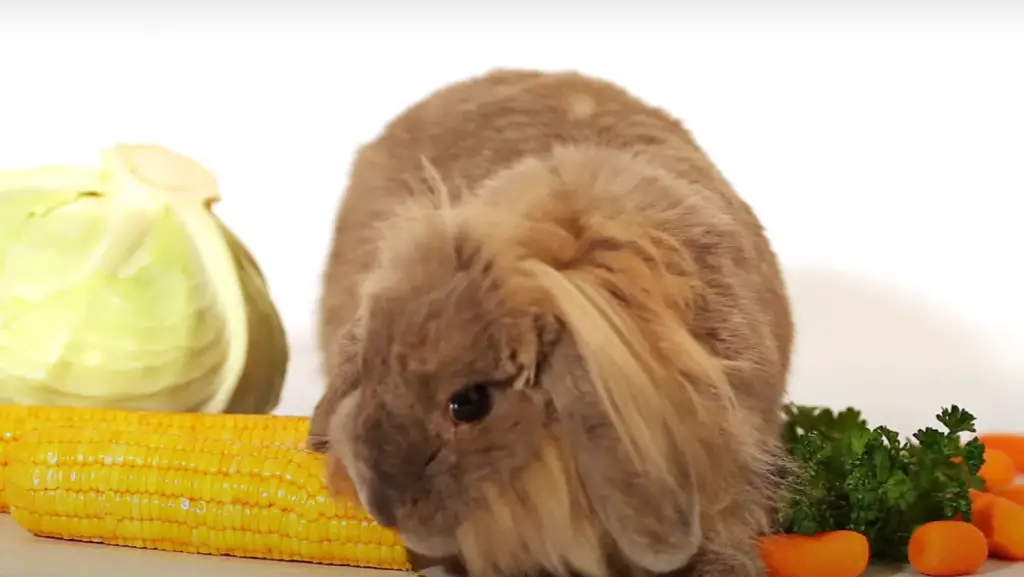
When feeding your rabbit radishes, it’s best to stick with the root portion as the leafy tops are more likely to cause digestive issues. The root should also be thoroughly washed before you feed it to your rabbit to remove any dirt or chemical residue that may have been present during cultivation.
Can Rabbits Eat Daikon Radish Leaves?
Rabbits can eat daikon radish leaves safely in moderation, however, they should not be the main component of their diet. Daikon radish leaves contain a moderate amount of sugar and fiber, which can lead to digestive issues if consumed in large amounts. Additionally, the leaves may contain trace amounts of pesticides or other chemicals that could be harmful to rabbits if ingested. As with all vegetables, make sure you wash them thoroughly before offering them to your rabbit [1].
What Are the Benefits of Radishes for Rabbits?
High Water Content
Radishes are composed of almost 90% water, making them a great way to keep your rabbit hydrated. The high water content also helps support digestive health and regulates the temperature of your rabbit’s body.
Vitamins and Minerals
Radishes are rich in vitamins like A, B, C, and E as well as minerals such as potassium, magnesium, phosphorus, and zinc. These nutrients help to build strong bones for your rabbit while also boosting their immunity against disease-causing organisms.
Fiber Content
Radishes are an excellent source of dietary fiber which aids in digestion and keeps the gut healthy. Fiber-rich foods can also help reduce cholesterol levels in rabbits which improves overall heart health.
Antioxidants
Radishes contain various antioxidants like lycopene, anthocyanins, and flavonoids which help to reduce inflammation in the body.
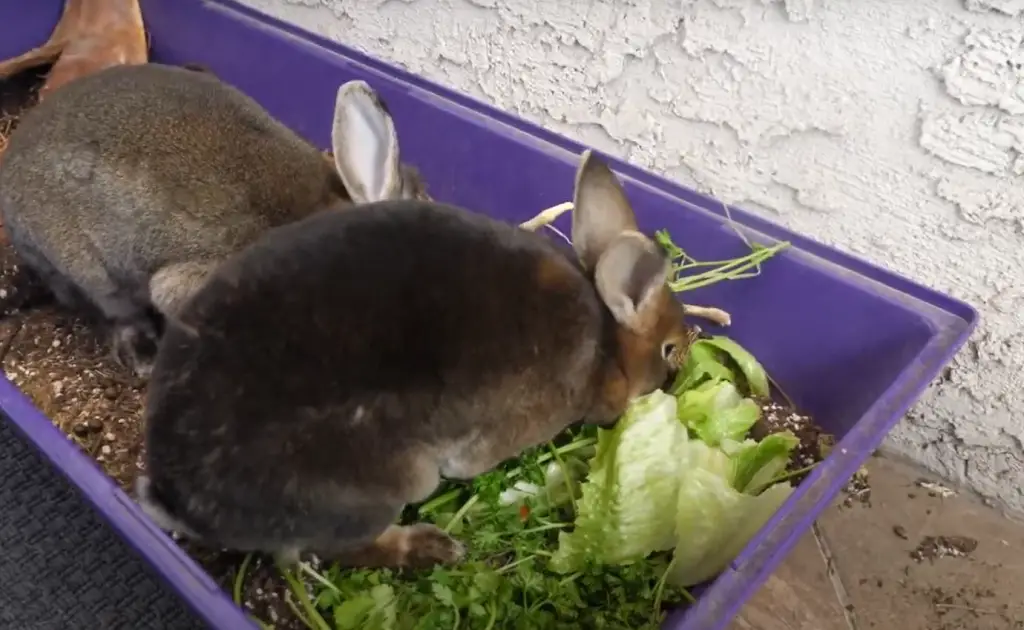
These powerful compounds can also help fight against free radicals that cause oxidative stress and damage cells.
Control Blood Sugar Levels
Radishes have a low glycemic index which means they can help to regulate blood sugar levels in rabbits. This is especially beneficial for diabetic rabbits as it helps them maintain healthy glucose levels.
Overall Health Benefits
Regularly feeding your rabbit radishes can help improve their overall health and well-being. Radishes are packed with vitamins, minerals, antioxidants, and dietary fiber that all work together to support better digestion, stronger bones, healthier heart function, and more balanced blood sugar levels. So, give your furry friend some radish love today [2]!
What Are the Risks of Radishes?
Gastrointestinal Stasis
Radishes can cause gastrointestinal stasis, which is a common problem in rabbits. This occurs when the digestive system of the rabbit slows down due to a lack of dietary fiber or other nutrition. Radishes are high in sugar and carbohydrates, which can slow down digestion and lead to gastrointestinal stasis. Symptoms of this issue include loss of appetite, weight loss, vomiting, lethargy, bloating, and diarrhea. If left untreated it can be potentially fatal for your rabbit.
Allergic Reactions
Radishes can also cause allergic reactions in some rabbits. Symptoms of an allergic reaction may include sneezing, coughing, watery eyes, redness, or itching around the face and muzzle area. If you notice any of these symptoms, you should immediately remove the radish from your rabbit’s diet and take them to the vet for further testing.
Overfeeding
As with all treats, it’s important not to overfeed radishes to your rabbit. Radishes are a high-calorie treat and can easily lead to weight gain if given in large quantities.
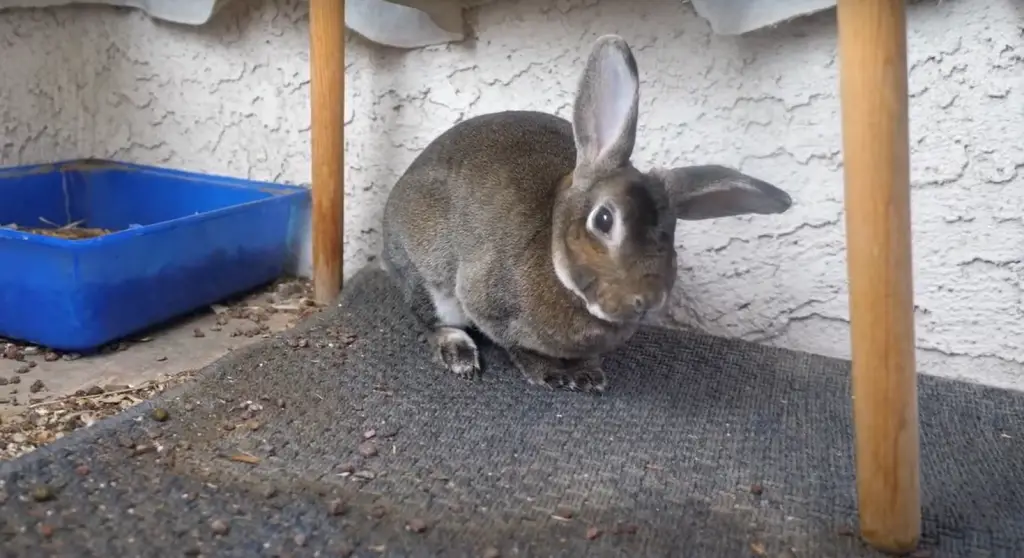
If you want to give your rabbit radishes, make sure they only receive small amounts as an occasional treat.
Pesticides
Radishes can also contain pesticides and other chemicals, so it’s important to purchase organic radishes whenever possible. These should be washed thoroughly before giving them to your rabbit to make sure any harmful substances are removed. Additionally, radishes should only be given in moderation as part of a balanced diet.
Radish Tops High in Oxalates
Radish tops are high in oxalates, which are compounds that can bind to calcium and other minerals, making them less available for your rabbit’s body to use. This can lead to mineral deficiencies, particularly in rabbits who are already lacking in certain nutrients. If you give your rabbit radishes, make sure it’s only the root and not the leaves or stems.
High in Vitamin C
Radishes are high in vitamin C, which is beneficial for rabbits as long as it’s given in moderation. Vitamin C helps with digestion and can provide an immune system boost.
Avoid Overripe Radish
It’s important to avoid overripe radishes as these can be harder to digest and may cause digestive discomfort in rabbits. It’s best to select fresh, firm radishes and avoid any soft spots or mold. Additionally, radishes should be washed thoroughly before being given to your rabbit.
9 Ways to Prevent Rabbits from Gobbling Up Your Garden
Garden Fencing
One of the easiest and most effective ways to prevent rabbits from accessing your garden in the first place is by installing a fence. Chicken wire or hardware cloth works well, but make sure it’s high enough (at least 2 feet) so rabbits can’t jump over it. Bury at least 6 inches of the fencing into the ground as well, to ensure that they won’t dig underneath it.
Repellents
You can use various types of repellents like commercial products or homemade solutions to deter rabbits from entering your garden area.
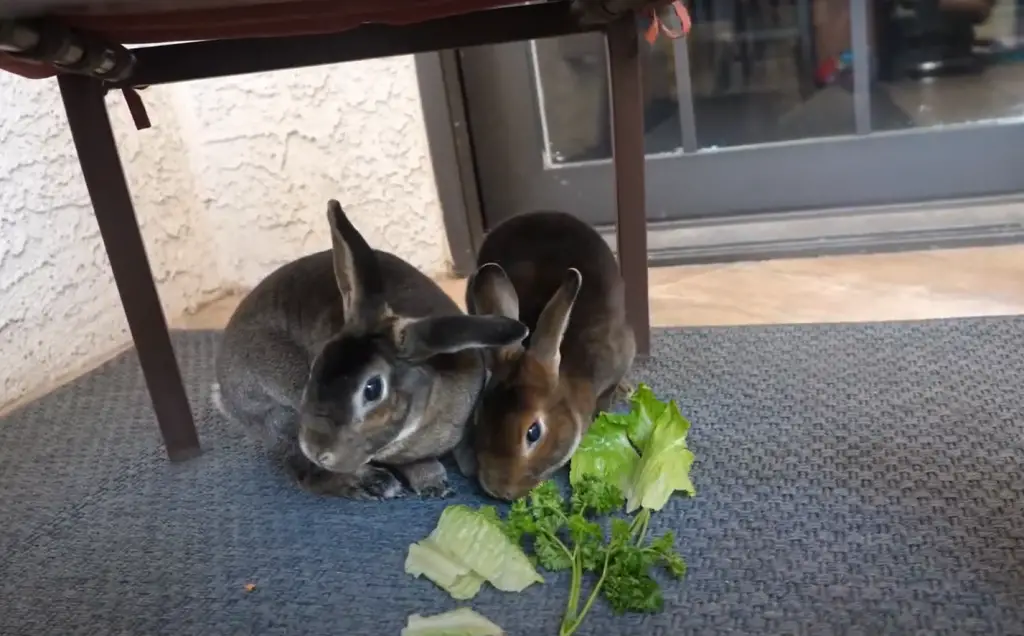
Sprinkle cayenne pepper on top of the soil around plants, or spray a mixture of water and garlic oil around the perimeter of your garden bed. You can also try planting certain types of plants that repel rabbits, like onions, garlic, and marigolds.
Scare Tactics
Using motion-activated water sprinklers or hanging shiny items such as CDs or aluminum pie plates on a fence can help scare away rabbits. Placing rubber snakes around the perimeter of your garden is another option to scare them off.
Dogs & Cats
Having a pet dog or cat in the yard can help keep rabbits away — especially if they are allowed to roam the area freely. The presence of these animals should be enough to keep them from entering the garden area.
Raised Beds
Building raised beds for your vegetables and flowers will protect them from rabbit damage as well as provide easier access for weeding and harvesting. Moreover, they will keep rabbits away from the roots of your plants.
Cover Crops
Using cover crops or mulches can help protect your garden and discourage rabbits from entering the area. Planting clover, ryegrass, oats, and alfalfa are some great options as these act as a natural deterrent. You can also use wood chips or straws to create a protective barrier that is less attractive to rabbits.
Mulch & Netting
Using mulch or wire netting can also help to protect your plants from rabbits. Spread a thick layer of mulch around the base of any vulnerable plants, or use a wire mesh to cover them. Doing this should provide an extra barrier that keeps rabbits out of your garden.
Use Natural Rabbit Deterrents
Growing certain plants around the perimeter of your garden or in containers can help repel rabbits. Planting lavender, rosemary, garlic, and mint are some great options to deter them from entering the area. These natural deterrents will not only keep rabbits away but will also bring a pleasant fragrance to your garden.
Grow a Wildlife Garden
If you don’t mind having some rabbits around your garden, then consider growing a wildlife or bunny-friendly garden. Planting clover, dandelions, and other grasses will help attract them away from your veggies and flowers. Additionally, providing a shallow water dish may also help to keep them happy — and away from your plants [3]!
General diet for rabbits
Rabbits should have a diet that is high in fiber and low in carbohydrates. A good diet for rabbits includes hay, grasses, fresh vegetables such as carrots, broccoli, cauliflower, and kale as well as fruits like apples and pears. Pellets can also be given but not too much because they are full of calories.
Treats such as raisins or sunflower seeds should only be given sparingly since they are high in sugar and fat which can lead to serious health problems. To ensure that your rabbit gets all the nutrients it needs, feed them a balanced diet with fresh foods always available. Water should always be available to prevent dehydration and ensure proper hydration.
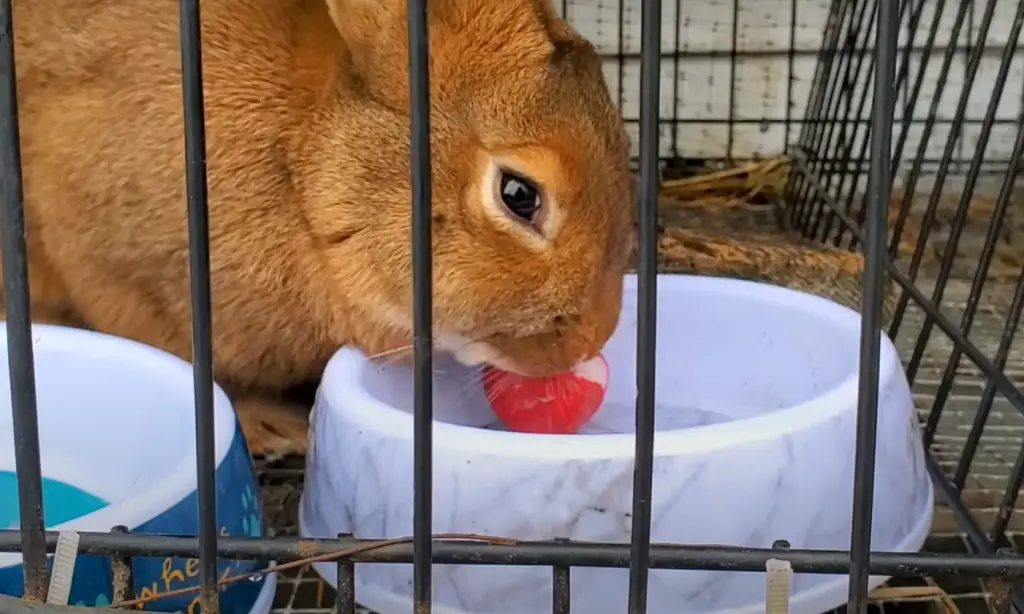
It is important to monitor your rabbit’s diet and make sure they don’t get overweight.
Make sure that there are no uneaten pieces of food left in their cage because this can attract pests or cause health problems.Also, keep an eye out for any signs of digestive issues such as diarrhea or vomiting so that you can adjust your diet accordingly. It is also important to provide rabbits with enough exercise so that they stay healthy and in shape. Stimulating toys, wide space to run around, and opportunities for playtime are all great ways to encourage exercise.
FAQ
What vegetables rabbits can not eat?
Rabbits should not eat any vegetables from the nightshade family, including potatoes, tomatoes, peppers, and eggplant. Rhubarb leaves are also toxic for rabbits to consume. In addition, there are some other vegetables that rabbits should avoid such as onions and garlic. Because they contain high amounts of sulfurous compounds which can be dangerous for a rabbit’s health. Lastly, make sure to avoid feeding your rabbit any mushrooms as they are highly poisonous to rabbits. Always do research before introducing new foods into a rabbit’s diet so you can ensure your beloved pet is eating safe and healthy food.
Can rabbits eat celery and radishes?
Yes, rabbits can eat celery and radishes in moderation. Both vegetables should be washed thoroughly before feeding them to your rabbit. Celery contains a good amount of fiber, Vitamin A, and potassium which is beneficial for a rabbit’s health. Radishes contain some calcium and magnesium as well as Vitamins C and K. However, these vegetables should not constitute the main part of a rabbit’s diet; they should only make up a small portion of their diet. It is also important to note that both celery leaves and radish greens are toxic for rabbits so they should never consume them.
What fruits do rabbits like?
Rabbits typically enjoy eating berries such as strawberries, raspberries, blueberries, cranberries, and blackberries. They can also eat apples, pears, peaches, bananas, melons, and grapes in moderation. All fruits should be washed and cut into small pieces prior to feeding them to your rabbit so they are easier for them to digest. Fruits should not make up a large portion of their diet as they contain sugar which is not good for their health in high amounts. Always do research before introducing new food items into your rabbit’s diet so you can ensure they are eating foods that are safe and healthy for them.
Can rabbits eat lettuce?
Yes, rabbits can eat lettuce in moderation. Iceberg lettuce should be avoided due to its low nutritional content. Romaine or dark green leafy lettuces such as kale, arugula, and spinach are preferred as they contain higher amounts of Vitamins A and C. Lettuce should not be a large portion of their diet as it contains mostly water and can produce uncomfortable gas in rabbits if they consume too much. Lastly, make sure to thoroughly wash any lettuce before feeding it to your rabbit. It is always important to research what foods are safe for your rabbit before introducing them into their diet so you can ensure they stay healthy and happy.
Which animals eat radishes?
Radishes are a popular snack for many animals including rabbits, deer, mice, rats, squirrels, guinea pigs, and birds. All of these animals enjoy eating radishes as they contain a good amount of fiber and calcium and magnesium. Radishes should be washed thoroughly before feeding them to any animals so they don’t consume any dirt or bacteria that may be on the surface. Always do research before introducing new food items into your pet’s diet to ensure their safety and health.
Can rabbits eat cooked radish?
No, rabbits should not eat cooked radish as it is difficult for them to digest. In addition, cooking the radish will reduce the number of vitamins and minerals it contains which can be detrimental to a rabbit’s health.
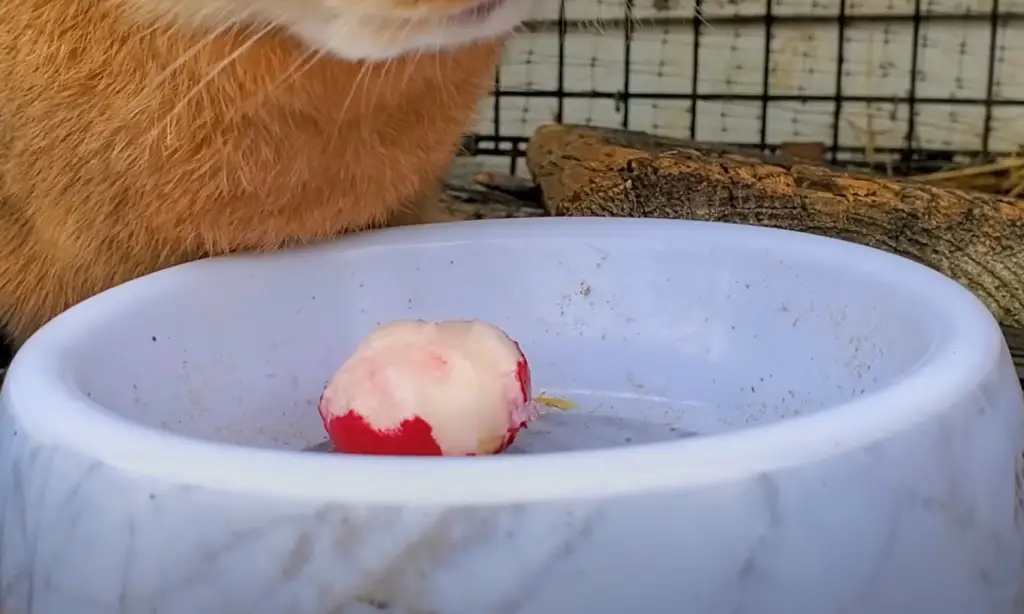
Raw radishes are the best option for rabbits as they contain more essential nutrients and vitamins that are beneficial for their health. Always do research before introducing new food items into your pet’s diet to ensure their safety and health.
Can I give my rabbit pickled radish?
No, pickled radish should not be given to rabbits as it contains too much salt and other preservatives. These can be harmful to a rabbit’s health if consumed in large amounts. Raw radishes are the best option for feeding your rabbit as they contain more essential nutrients and vitamins that are beneficial for their health. Always do research before introducing new food items into your pet’s diet to ensure their safety and health.
Why do rabbits like radishes?
Rabbits like radish because it is crunchy and contains a variety of essential vitamins and minerals that are beneficial for their health. Radishes contain some calcium and magnesium as well as Vitamins C and K. While these vegetables should not constitute the main part of a rabbit’s diet, they can make up a small portion of it which helps to ensure their overall health. Always do research before introducing new food items into your pet’s diet to ensure their safety and health.
How to choose the right radish for my rabbit?
When choosing a radish for your rabbit, it’s important to look for firm, unblemished ones that have no wilting, discoloration, or mold. It’s also very important to ensure the radishes you purchase are pesticide-free. Organic radishes will give you peace of mind that they are free from harmful chemicals and toxins. Lastly, always wash the radishes before feeding them to your rabbit as this will remove any dirt or bacteria that may be present on the surface. Always do research before introducing new food items into your pet’s diet to ensure their safety and health.
Why do you need to wash lettuce before feeding it to rabbits?
It is important to wash lettuce before feeding it to rabbits as it could contain dirt, bacteria, or other contaminants that can be harmful for your rabbit’s health. In addition, washing the lettuce will help remove any pesticides or chemicals that may have been used on the crop. Lettuce should always be washed thoroughly with clean water and then dried before being fed to your rabbit. This ensures that your rabbit stays healthy and safe from any potential contaminants in their diet. Always do research before introducing new food items into your pet’s diet to ensure their safety and health.
How to maintain a healthy diet for my pet rabbit?
Maintaining a healthy diet for your pet rabbit is important as it can help ensure their health and well-being. The best way to do this is by providing them with a balanced diet consisting of hay, fresh vegetables, and small amounts of fresh fruits. Provide them with ample water throughout the day and always research any new food items before introducing them to your pet’s diet. Additionally, avoid feeding your rabbit processed foods or sugary treats as these are not beneficial for their health.
What are the benefits of feeding radishes to my rabbit?
Feeding your pet rabbit radishes can provide them with a variety of essential vitamins and minerals. Radish contains some calcium and magnesium, as well as Vitamins C and K, which all help to maintain a healthy diet for your pet rabbit. Additionally, the crunchy texture of radish can make it an enjoyable treat for your pet.
How to feed radishes to my pet rabbit?
Radishes can be fed to your rabbit either raw or cooked. If feeding them raw, ensure they are washed thoroughly with clean water and then dried before giving them to your pet. If you choose to cook the radish, steam it for a few minutes until soft but not too mushy. Always monitor the amount of food given and never overfeed your pet as this can lead to health issues in the long run.
Useful Video: Is feeding radishes to RABBIT, ok? What do Rabbits Eat…
Conclusion
So, do rabbits eat radishes in the garden? The answer is yes, rabbits do eat radishes in the garden. Radishes are an excellent source of nutrition for these animals, and they provide a tasty addition to their diet. However, it is important to remember that rabbits should not be overfed with radishes or other vegetables, as too much can lead to digestive problems. It is best to feed them small amounts of radish greens or cut-up pieces of fresh root on occasion as part of a balanced diet that includes hay and other appropriate treats. With proper care and a healthy diet, rabbits can enjoy munching on radishes safely in the garden!
References:
- https://www.rabbitcaretips.com/can-rabbits-eat-radishes/
- https://www.rabbitfoodguide.com/can-rabbits-eat-radishes/
- https://www.ruralsprout.com/prevent-rabbits-in-the-garden/





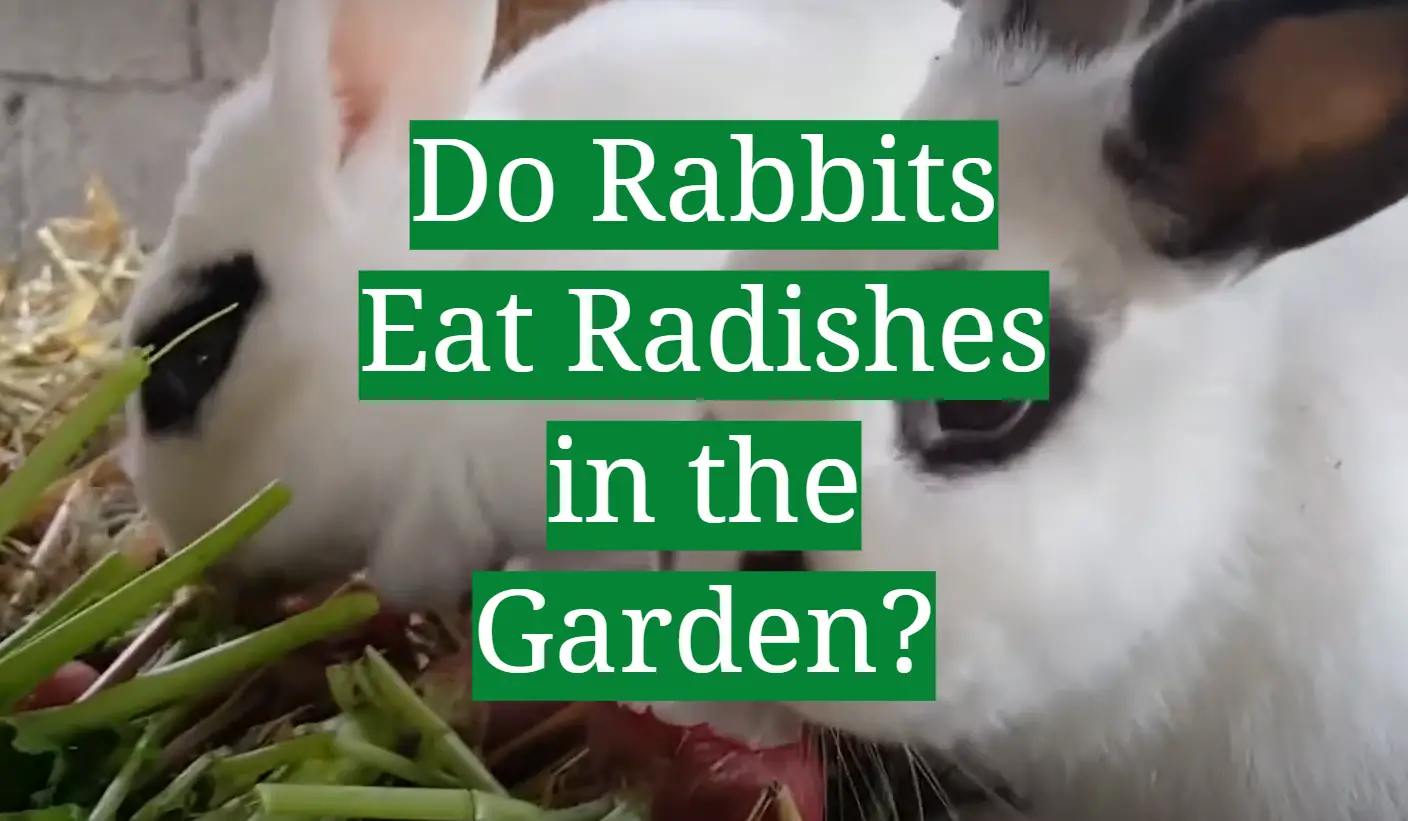
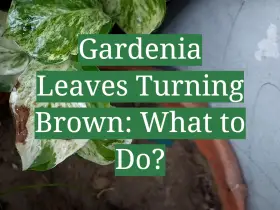


Leave a Reply
View Comments